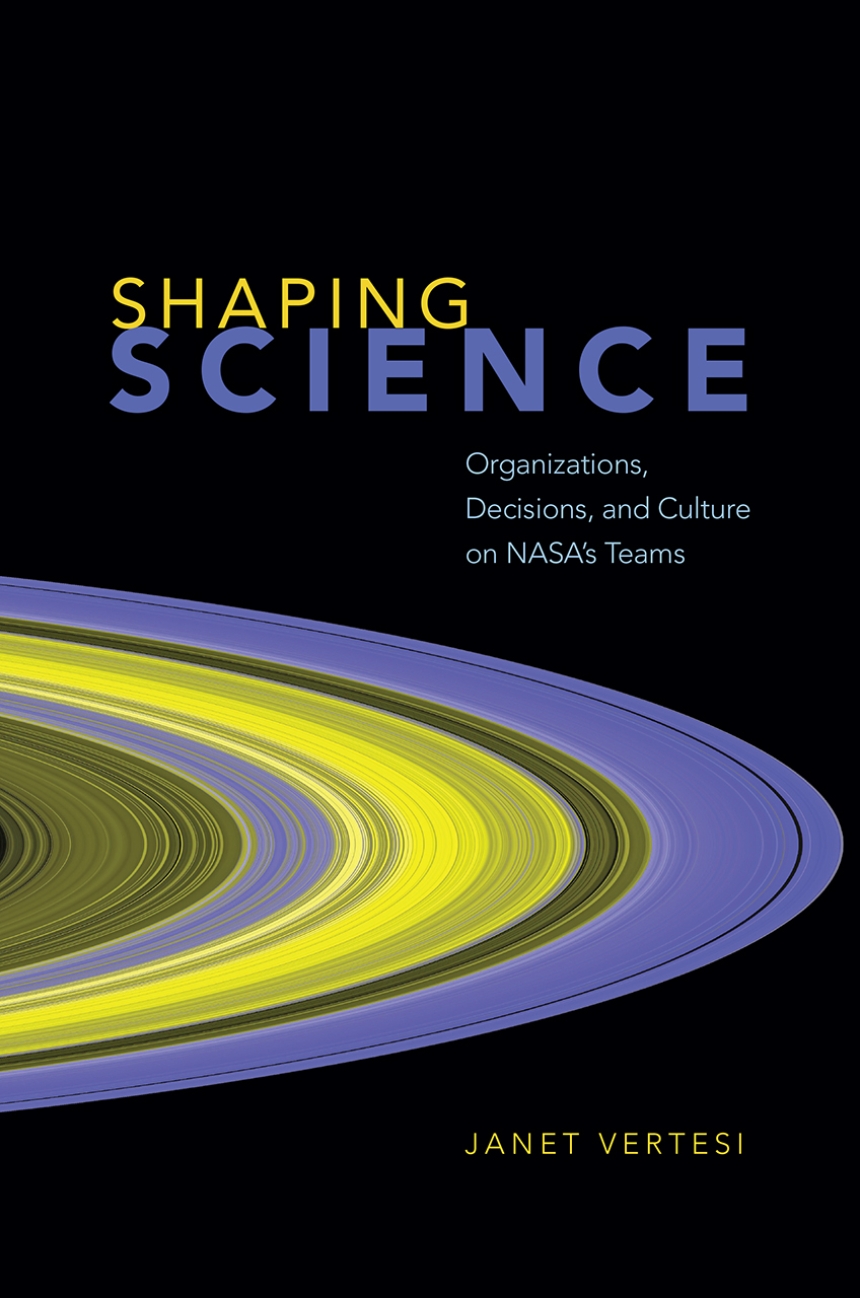Shaping Science
Organizations, Decisions, and Culture on NASA’s Teams
Drawing on a decade of immersive ethnography with NASA’s robotic spacecraft teams to create a comparative account of two great space missions of the early 2000s, Janet Vertesi uncovers how the social organization of a scientific team affects their scientific practices and results.
In Shaping Science, Janet Vertesi draws on a decade of immersive ethnography with NASA’s robotic spacecraft teams to create a comparative account of two great space missions of the early 2000s. Although these missions featured robotic explorers on the frontiers of the solar system bravely investigating new worlds, their commands were issued from millions of miles away by a very human team. By examining the two teams’ formal structures, decision-making techniques, and informal work practices in the day-to-day process of mission planning, Vertesi shows just how deeply entangled a team’s local organizational context is with the knowledge they produce about other worlds.
Using extensive, embedded experiences on two NASA spacecraft teams, this is the first book to apply organizational studies of work to the laboratory environment in order to analyze the production of scientific knowledge itself. Engaging and deeply researched, Shaping Science demonstrates the significant influence that the social organization of a scientific team can have on the practices of that team and the results they yield.
In Shaping Science, Janet Vertesi draws on a decade of immersive ethnography with NASA’s robotic spacecraft teams to create a comparative account of two great space missions of the early 2000s. Although these missions featured robotic explorers on the frontiers of the solar system bravely investigating new worlds, their commands were issued from millions of miles away by a very human team. By examining the two teams’ formal structures, decision-making techniques, and informal work practices in the day-to-day process of mission planning, Vertesi shows just how deeply entangled a team’s local organizational context is with the knowledge they produce about other worlds.
Using extensive, embedded experiences on two NASA spacecraft teams, this is the first book to apply organizational studies of work to the laboratory environment in order to analyze the production of scientific knowledge itself. Engaging and deeply researched, Shaping Science demonstrates the significant influence that the social organization of a scientific team can have on the practices of that team and the results they yield.
352 pages | 12 halftones | 6 x 9 | © 2020
History: History of Technology
Physical Sciences: Astronomy and Astrophysics
Sociology: Formal and Complex Organizations, Theory and Sociology of Knowledge
Reviews
Table of Contents
Preface
Introduction
Introduction
Part 1: Orders
Chapter 1: The Context
Chapter 2: The Integrators
Chapter 3: The Resolutions
Chapter 4: The Collective
Chapter 5: The Environment
Part 2: Outcomes
Chapter 6: The Science
Chapter 7: The Spacecraft
Chapter 8: The Data
Chapter 9: The Personalities
Chapter 10: The Iterative Loop
Conclusion
Postscript: Methodological Reflections
Acknowledgments
Appendix: Acronym and Technical Dictionary
Notes
References
Index
Postscript: Methodological Reflections
Acknowledgments
Appendix: Acronym and Technical Dictionary
Notes
References
Index
